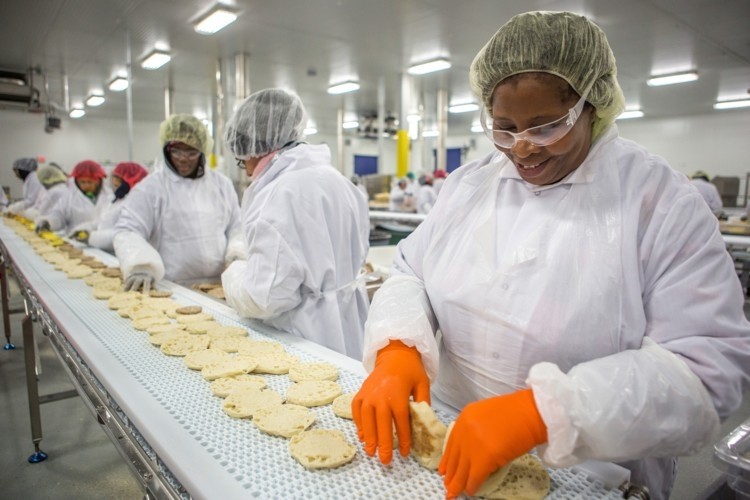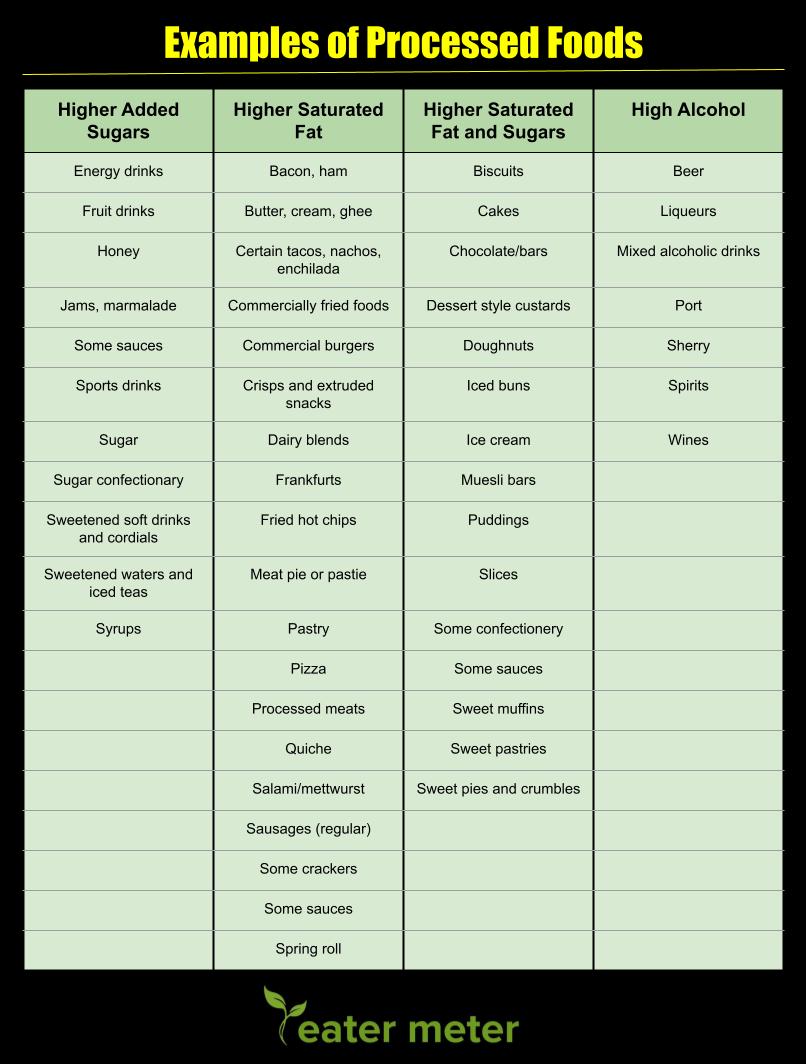CATEGORIES
What Are Processed Foods? - Knowing the Difference Between Processed and Unprocessed Foods
Oct 04,2021

You may often hear the term "processed foods" or "whole foods" thrown around casually in conversations regarding healthy eating. But, what do these terms mean? Why is it important to identify these kinds of foods in your diet or future shopping list? This article will explain the brief difference between the two, briefly talk about the differences and why they matter.
What is the difference between "Processed Foods" and "Unprocessed Foods"?
Realistically speaking, nearly all food we eat have gone through some form of processing. Whether it is a quick wash, minor preservation additives, or the myriad ways so many snack foods are processed to look and taste the way they do.

Luckily, researchers have found a way to classify foods based on the level of processing they have undergone. The classification is called the NOVA Classification (not an acronym) created by Carlos Monteiro. Not to get too complicated, I will try and define them as best I can:
-
Unprocessed or minimally processed foods (Group 1): Minimal altering of natural foods like edible parts of plants, animals or fungi without any processes applied to them. Examples are fresh fruit, vegetables, grains, legumes, meat, milk;
-
Processed culinary ingredients (Group 2): Comprising substances extracted from Group 1 or nature (e.g., salt) used to cook and season minimall processed foods. Examples are fats, oils, sugars and starches;
-
Processed foods (Group 3): Comprised of industrial products made by adding processed culinary ingredients to unprocessed or minimally processed foods. Examples include canned vegetables in brine, fruit in syrup and cheese/dairy products; and
-
Ultra-processed foods (Group 4): Food produced in an industrial or factory which requires sophisticated equipment, formulation ratios and technology before consumption. Examples include sweet and savoury snacks, reconstituted meats, pizza dishes and confectionery, among others).
Note: for more information on the above food categories, see here.
In the context of everyday language, I think it is safe to say that groups 1, 2 & 3 are "whole foods" or generally unprocessed (in the loosest sense of the word), comprising fresh fruit, vegetables, meat cuts and dairy. At the same time, group 4 would be considered "processed foods", which are industrial products made from a series of industrial processes with sophisticated equipment and technology such as crisps, candy, soft drinks, packaged cakes, processed meats, fast foods etc. This information is important if you are using the Eater Meter Scoring System (read more about Eater Meter here).
The difference between processed and unprocessed foods can be quite afront. The Australian Dietary Guidelines (2018) mention how processed foods are calorically (energy) dense, meaning that more calories go into each bite you take. Also, these guidelines note how processed have higher salt, saturated fat, added sugars, added salt or alcohol.
On the other hand, researchers have found that unprocessed or whole foods would typically be less energy-dense, have higher nutrient density, and have more fibre. With an increased nutrient density and lower caloric density, more nutrients and fewer calories go into each bite you take.
Why does consuming Processed Foods or Unprocessed Foods matter?
A diet overdependent on processed foods may be high in calories and lower in nutrients, leading to obesity and a suite of cardiovascular diseases. Essentially, such a diet risks displacing healthier home-cooked meals based on whole foods (unprocessed foods). In contrast, a diet based on whole foods will be generally higher in nutrients and lower in calories, reducing the risk of obesity and associated cardiovascular diseases.
So, what could you expect to happen to you if your diet currently is, or is leading towards, dependence on processed foods? Researchers who compiled 43 other studies to answer this question found that 37 of the 43 studies linked the consumption of ultra-processed foods to at least one adverse health outcome. These included obesity, cardio-metabolic risks, cancer, type-2 diabetes and cardiovascular diseases. Another similar study found a significant increase in the risk of overweight/obesity, high waist circumference, low HDL-cholesterol levels and metabolic syndrome.
Now, there is another side to this coin; let us not forget. How does the overconsumption of processed foods affect the environment? Or your carbon footprint?
Researchers have found that locally sourced and minimally processed food has a lower carbon footprint than foods that are not local. Think unprocessed fruit and vegetables. Additionally, researchers have found that minimally processed vegetarian food has a lower environmental impact than ultra-processed non-vegetarian foods.

We can also mention how processed foods generally have more packaging than unprocessed whole foods.
Is processed food bad?
Processed food is not all bad. Its implementation in your diet has benefits, such as ultra-streamlined production (as in high efficiency in using resources) or extended shelf lives, reducing food waste (another significant environmental issue), and adds to the overall enjoyment of eating. However, there are processed foods to avoid, such as ultra-processed foods containing animal products, palm oil, and soy oil. Processed meats have some of the highest health and environmental impacts, while soy and palm oil containing ultra-processed foods are associated with vast amounts of deforestation.
While you should be mindful of processed foods, it is ok to consume them every so often. The Australian Dietary Guidelines have a great position when it comes to the consumption of processed foods (called "discretionary choices" in the guideline). The Australian Dietary Guidelines recommend these foods as "extras" to your diet, consuming them in small amounts and not relying on them for nutritional purposes. Consuming ultra-processed foods should be done primarily in social or cultural settings. For most adults, 0 to 3 serves (1 serve is approx. 143 calories or 600 kilojoules) a day will be suitable, depending on age, height and activity level.
Here is a small reference table of the types of foods that are considered highly processed.

Note: The above table is adapted from The Australian Dietary Guidelines 2018.
If you need help improving your dietary health and reducing your diets environmental impact, consider signing up to Eater Meter. We have developed a scoring system based on your diets health, and environmental impact.
